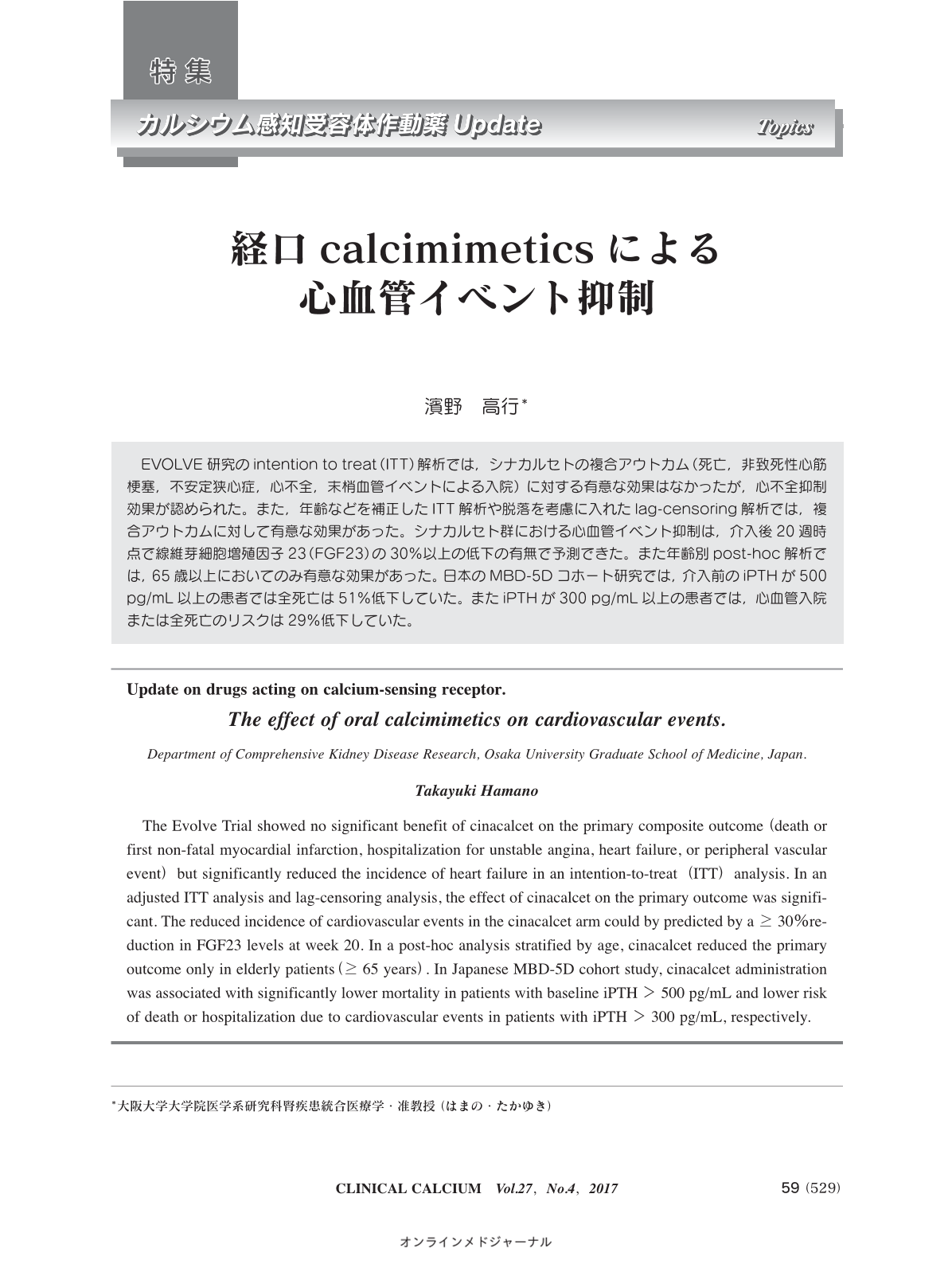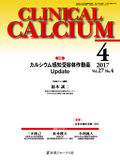Japanese
English
- 有料閲覧
- Abstract 文献概要
- 1ページ目 Look Inside
- 参考文献 Reference
EVOLVE研究のintention to treat(ITT)解析では,シナカルセトの複合アウトカム(死亡,非致死性心筋梗塞,不安定狭心症,心不全,末梢血管イベントによる入院)に対する有意な効果はなかったが,心不全抑制効果が認められた。また,年齢などを補正したITT解析や脱落を考慮に入れたlag-censoring解析では,複合アウトカムに対して有意な効果があった。シナカルセト群における心血管イベント抑制は,介入後20週時点で線維芽細胞増殖因子23(FGF23)の30%以上の低下の有無で予測できた。また年齢別post-hoc解析では,65歳以上においてのみ有意な効果があった。日本のMBD-5Dコホート研究では,介入前のiPTHが500 pg/mL以上の患者では全死亡は51%低下していた。またiPTHが300 pg/mL以上の患者では,心血管入院または全死亡のリスクは29%低下していた。
The Evolve Trial showed no significant benefit of cinacalcet on the primary composite outcome(death or first non-fatal myocardial infarction, hospitalization for unstable angina, heart failure, or peripheral vascular event)but significantly reduced the incidence of heart failure in an intention-to-treat(ITT)analysis. In an adjusted ITT analysis and lag-censoring analysis, the effect of cinacalcet on the primary outcome was significant. The reduced incidence of cardiovascular events in the cinacalcet arm could by predicted by a >30% reduction in FGF23 levels at week 20. In a post-hoc analysis stratified by age, cinacalcet reduced the primary outcome only in elderly patients(>65 years). In Japanese MBD-5D cohort study, cinacalcet administration was associated with significantly lower mortality in patients with baseline iPTH >500 pg/mL and lower risk of death or hospitalization due to cardiovascular events in patients with iPTH >300 pg/mL, respectively.



